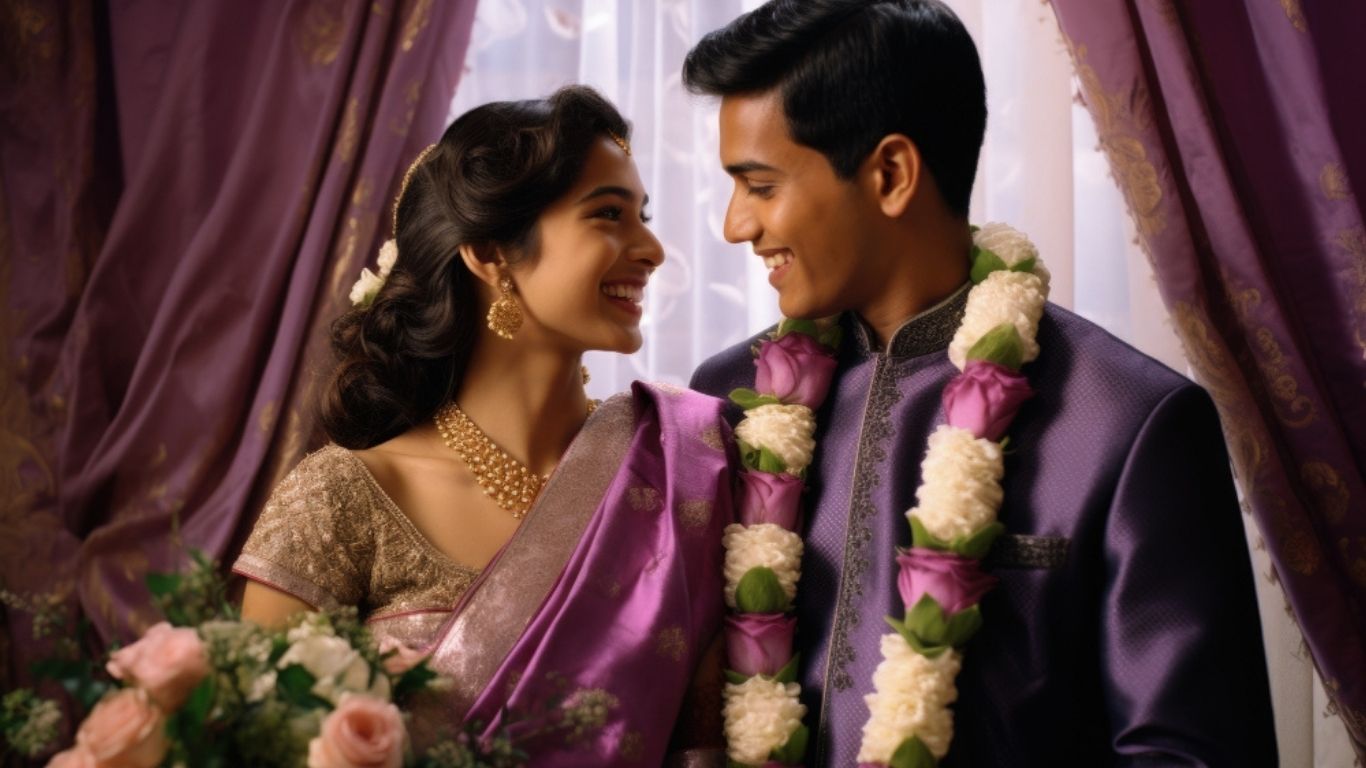
Marriage is one of the most important milestones in a person’s life, shaping not just the couple’s journey but also influencing families, communities, and future generations. In Jainism, a faith rooted deeply in non-violence, truth, and simplicity, marriage and relationships are approached with great thoughtfulness. Jain teachings provide a unique and profound perspective on how two individuals can live harmoniously while maintaining their personal and spiritual growth.
Let’s explore what Jainism teaches about marriage and relationships and how these ancient principles are still relevant today.
1. Marriage as a Social Duty
It enables an individual to fulfill responsibilities, uphold dharma, and practice virtues such as compassion, charity, and truthfulness.
Marriage is not seen merely as an emotional bond but as a partnership based on mutual respect, shared values, and a collective journey toward spiritual growth.
2. Qualities to Look for in a Partner
According to Jainism, choosing a life partner should go beyond physical attraction or wealth. Instead, certain virtues are highly emphasized:
Satya (Truthfulness): Honesty and integrity form the backbone of a strong relationship.
Aparigraha (Non-possessiveness): A Jain partner should be free from excessive attachments and greed.
Shila (Moral Conduct): High moral standards and ethical behavior are crucial in a life partner.
In many traditional Jain families, these qualities guide matrimonial decisions, ensuring that marriages are based on shared spiritual values rather than superficial traits.
3. Equality and Respect in Relationships
Jainism, particularly in its spiritual philosophy, acknowledges the potential of both men and women to achieve liberation. This belief extends into marriage, promoting a relationship dynamic based on mutual respect and equality. Instead, both are companions in a shared journey toward fulfilling their worldly and spiritual duties.
The Jain code of conduct advises individuals to treat their spouses with kindness, avoid deceit, and maintain fidelity, ensuring a relationship rooted in trust and respect.
4. The Importance of Non-violence and Compassion
Partners are encouraged to handle conflicts with calmness and understanding rather than anger or harsh words. Compassion, patience, and forgiveness are emphasized as essential virtues to nurture a lasting relationship.
Even in disagreements, Jains are taught to prioritize non-harm, promoting a peaceful and loving home environment.
5. Celibacy and Control
While marriage is encouraged for most laypersons (śrāvakas and śrāvikās) in Jainism, control over sensual desires is also taught as a way of maintaining spiritual focus. Even within marriage, partners are advised to practice moderation. The aim is not to suppress natural human emotions but to channel them wisely, ensuring that material and sensual indulgences do not overshadow spiritual duties.
6. Family Life and Spiritual Growth
Family life is not seen as a hindrance to spiritual development in Jainism. Marriage teaches patience, humility, generosity, and non-attachment, all essential qualities for spiritual growth.
By fulfilling familial and social responsibilities with integrity and compassion, a householder can progress on the spiritual path while maintaining a balanced worldly life.
The Blessings Matrimonials
Specializing in matrimonial services for the Jain community, The Blessings Matrimonials focuses on connecting individuals who share similar life goals, values, and spiritual aspirations. With a curated approach to matchmaking that emphasizes virtues over material status, they help seekers find compatible partners based on principles like honesty, compassion, and non-violence. By blending traditional wisdom with modern matchmaking methods, The Blessings Matrimonials has become a beacon for those seeking meaningful, lifelong relationships rooted in Jain philosophy.
Don’t miss: Top 5 Legal Benefits of Marriage in India
Conclusion
Jainism’s teachings on marriage and relationships offer timeless wisdom that remains highly relevant even today. They teach us that marriage is not just a personal affair but a sacred duty that calls for virtues like truthfulness, non-violence, simplicity, and mutual respect. Rather than emphasizing material or superficial aspects, Jainism encourages couples to build relationships founded on shared values, compassion, and spiritual growth.
In a world where relationships are often tested by external pressures and changing values, the principles taught by Jainism provide a stable, meaningful framework for enduring love and harmony. Platforms like The Blessings Matrimonials make it easier for individuals to find partners who resonate with these teachings, ensuring that the journey of marriage becomes not just a worldly commitment but a spiritual partnership as well.